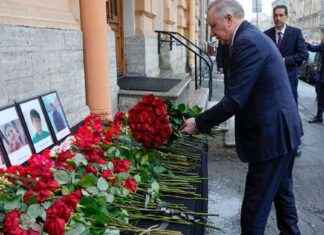Federal Minister of Agriculture Özdemir has proposed solutions for an impending grain crisis: From his point of view, savings could be achieved in the production of biofuel and animal feed. The fact that the EU is planning relaxed environmental regulations for farmers is a thorn in his side.
Federal Agriculture Minister Cem Özdemir has criticized the EU Commission’s announcement that it would relax environmental regulations for farmers in order to increase grain production. “Instead of taking responsibility for a sustainable agricultural policy itself, the EU Commission is pushing the member states into the hole,” Özdemir told the “Neue Osnabrücker Zeitung”. The Commission is evading the resentment from parts of the agricultural sector about sustainability goals and is shifting responsibility to the Member States.
Özdemir warned that he could only relax environmental regulations if he tightened them elsewhere. He must now check that carefully. However, Özdemir is skeptical about the frequently demanded complete waiver of the planned set-aside of four percent of arable land. There are “significantly larger levers that Brussels has unfortunately not pulled,” said the Federal Minister. Özdemir pointed out that plants that would later be used in biofuel production were grown on 14 percent of the arable land in Germany alone. “There is currently no good reason for grain in the tank. That has to be shut down,” demanded the Green politician. From a global perspective, a possible loss of Ukraine as a grain supplier could be compensated for several times by this alone.
A moderate reduction in the number of animals in Germany would also mean that “we would no longer have to grow fodder on 60 percent of the acreage for cereals”. He also expects proposals from the EU Commission on this, said Özdemir.
On Friday evening, the EU Commission declared that it wanted to suspend the so-called crop rotation rule in the coming year. It stipulates that around 1.5 million hectares of arable land in the EU must normally lie fallow. This is an area the size of Schleswig-Holstein. The regulation is intended to protect the fertility of the soil and nature.
To compensate for the shortage of Russian and Ukrainian grain caused by the Ukraine war, the commission had already approved a “temporary” exemption from the crop rotation rule for 2022 in March. This enables farmers to grow “crops for food” on land that is actually fallow. According to “NOZ”, the German agriculture ministers want to discuss the EU Commission’s plans for the coming year at their special meeting on Thursday.






